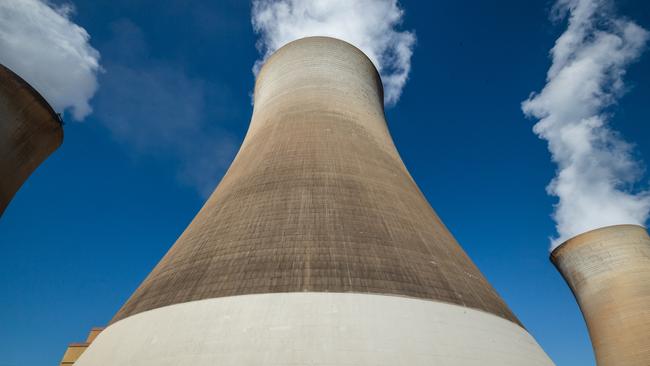Australia pays the price of a disorderly energy transition

And no one should be surprised that a disorderly transition is unfolding before our eyes, as politics has triumphed over good policy over the past decade or so.
Deloitte Access Economics modelling shows that a disorderly and unco-ordinated transition will reduce Australia’s growth potential by around $390bn over the coming 50 years.
While the gas and electricity spikes of today are a function of the Russian invasion of Ukraine, much of the turmoil in our energy markets is an own-goal – the result of ageing coal-based infrastructure which the market doesn’t want to invest in, the lack of co-ordination of the transition to renewables without the associated transmission and storage infrastructure, and the slow transition as state governments have marched ahead of the more intransigent politics at the federal level.
The consequences are not abstract – they are real for companies because the market has imposed its version of a ‘‘green tax’’ or penalty on those not seen to be decarbonising fast enough and taking it seriously.
The market is exacting this and it doesn’t care whether you believe in climate change or not.
It is penalising companies and the community at large.
This is a green tax imposed on the economy by the choices we have made so far.
More than two years ago it was widely reported that the then Rio Tinto CEO publicly asked investors if they were willing to see a reduction in returns to invest in climate action.
The question was a blunt one and the shareholder response equally clear: that it shouldn’t be a trade-off.
The investors were right – it shouldn’t be trade-off when the economic gains are so clear, if an investment mindset is adopted. The erroneous debate on trade-offs has blinded us to action and is putting us behind the eight-ball in realising the massive potential gains of becoming an energy superpower and in minimising the economic costs of the inevitable transition.
Hiding behind the trade-off argument as an excuse for inaction now comes at a price.
By dithering, Australia has baked in massive opportunity costs and needs to cut its climate red tape to get out of its own way. The cost of doing business in Australia will only go up with the changing preferences of consumers, investors, shareholders and voters when it comes to the climate. A disorderly transition is not cheap.
The market demands change and investment in new markets, products and services – with ‘‘green premiums’’ and low-emission ‘‘uplifts’’ available for early movers. There are lower interest rates on mortgages for homes that meet high environmental standards, for example. With the inverse true, there could soon be financial drawbacks and higher interest rates for higher-emissions-intensive goods or businesses.
For some of Australia’s largest industries, like commodities and natural resources, outputs may increasingly be priced according to how they are produced instead of the commodity itself.
The economics of provenance and traceability in supply chains, across products and their emissions, could see Australia attracting a premium in global trade.
Just recently, global investment giant BlackRock signalled that while still coming to fruition, green premiums could support firms in growing value instead of volume where investments are made to reduce emissions.
Such changes could also reduce the impost of carbon taxes at the border as Australia trades.
If Australia fails to cut its climate red tape quickly then every sector of the economy and the communities that make them will miss the opportunity to export our version of decarbonisation to the world. And in an increasingly complex and volatile global economy, the green tax Australia is paying is one we can’t afford.
Economic reforms are now necessary. Novel regulatory mechanisms, the creation of new markets, and investment in both transition and growth will drive the productivity that Australia’s economy desperately needs.
Most of all, we need to lose this mindset of a trade-off on climate because, when it comes to the climate, there really is no choice at all.
Claire Ibrahim is a partner at Deloitte Access Economics, and Dr Pradeep Philip is head of Deloitte Access Economics.






There is no free lunch when it comes to climate change, and the price of a disorderly transition is visible as we see Australia’s national energy market in turmoil, the price both major political parties paid at the federal election, and the scrapping of AGL’s proposed demerger.